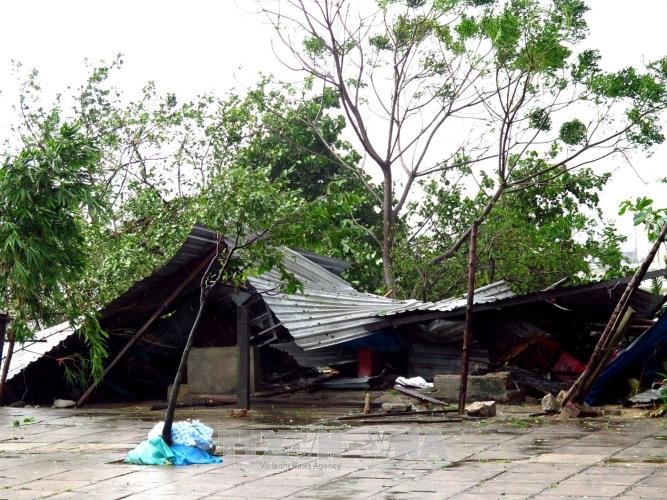 Society
Society

It is estimated that Việt Nam has lost VNĐ45,000 billion (US$2 billion) due to natural disasters this year, Nguyễn Đỗ Anh Tuấn, director of the Institute of Policy and Strategy for Agriculture and Rural Development (IPSARD) under the Ministry of Agricultural and Rural Development (MARD), said.
 |
| Houses collapse due to Typhoon Damrey in Tuy Hòa City in central Phú Yên Province at the beginning of November. — VNA/VNS Photo Thế Lập |
HÀ NỘI — It is estimated that Việt Nam has lost VNĐ45 trillion (US$2 billion) due to natural disasters this year, Nguyễn Đỗ Anh Tuấn, director of the Institute of Policy and Strategy for Agriculture and Rural Development (IPSARD) under the Ministry of Agricultural and Rural Development (MARD), said.
The information was revealed at a seminar on supporting innovative and sustainable agriculture in Việt Nam, held by the Embassy of the Kingdom of Belgium in collaboration with MARD, in Hà Nội on Thursday.
“We expected the situation to be brighter than last year, but the two major typhoons No 10 and 12 (Doksuri and Damrey) were a real slap in the face,” he said.
“While last year, natural disasters resulted in huge loss of crops, this year, it is our properties and infrastructure that have been damaged the most,” he added.
Agriculture is the only sector in Việt Nam that has continuously enjoyed a trade surplus since the economic reforms, but it is now facing several challenges that require drastic changes, Tuấn said.
International cooperation is of utmost importance to help Việt Nam’s agricultural sector overcome obstacles, Dr Nguyễn Việt Long, associate professor and director of Centre for Agricultural Technology Incubation under the National University of Agriculture, said.
“Future sustainable development in agriculture requires innovation in research and production management,” he said.
“While innovation is challenging for the agricultural sector in Việt Nam, funding resources and encouragement from international cooperation have strongly supported the development of agricultural incubator centres in the country,” he added.
Speaking at the conference, Belgian Deputy Minister of Foreign Affairs Dirk Achten said Belgium will continue its cooperation with Việt Nam on a deeper level in the future.
“In 2019, Belgium will end its bilateral collaboration with Việt Nam and focus more on the less developed sectors of the country,” he said. “This is because Việt Nam has now reached a different degree of development that needs another way of cooperation.”
“This will not mean that this is the end of our bilateral development cooperation,” he added. “We will continue to support the country through a several NGOs, university cooperation and the private sector, and our relations will only grow stronger.”
At the conference, Belgian experts proposed new agricultural methods and equipment to support sustainable and innovative agriculture in Việt Nam. These include remote sensing, low head screwing pumping technology and vertical farming.
A wind-driven desalinisation project is being developed by MARD under the support of a Belgian organisation, which is based on an off-grid mobile water treatment system powered by 100 per cent wind and solar energy. It is expected to be applied in 28 coastal regions of Việt Nam and will be able to provide sufficient domestic water for 10,000 people in rural areas. — VNS




